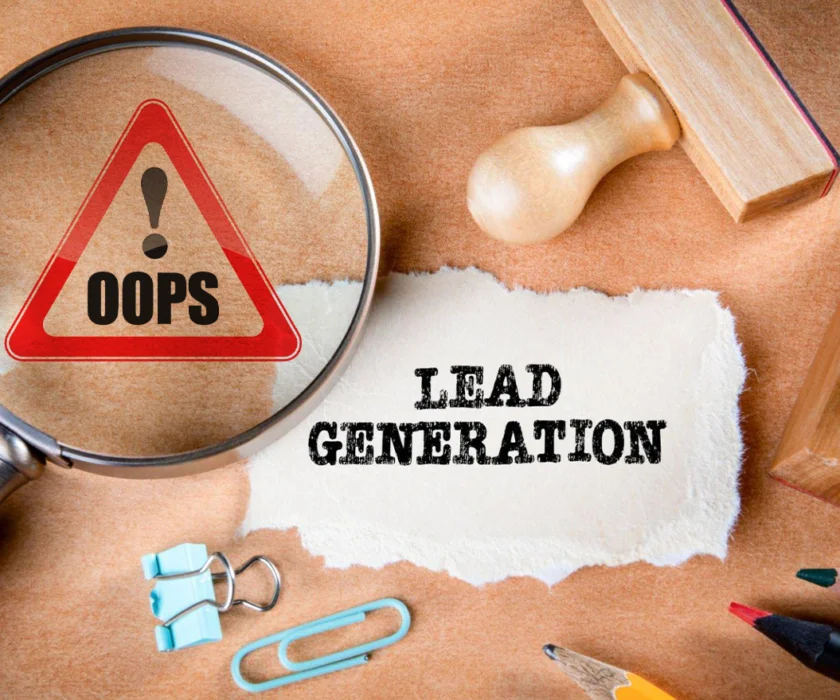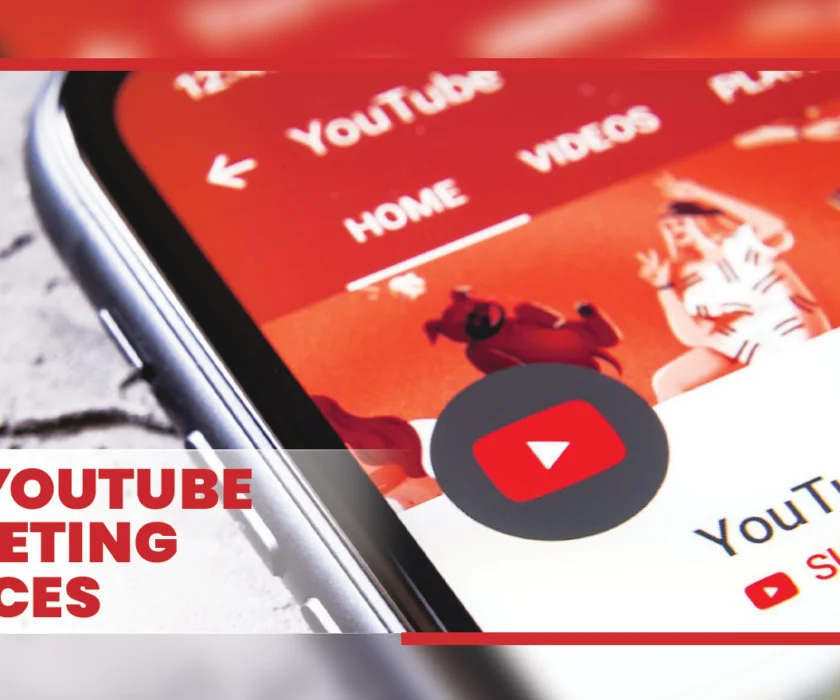The Future of AI in Marketing: A Revolution on the Horizon?
Hey there, curious mind! Have you ever wondered how Artificial Intelligence (AI) is making waves in marketing?
You know, that complex tech magic turning everyday tasks into futuristic experiences. It’s like turning a simple stroll through the woods into a high-speed roller coaster ride. Exciting, isn’t it?
So, What’s the Big Deal with AI in Marketing?
AI is not just a buzzword; it’s transforming marketing in ways you wouldn’t believe. Remember when online shopping was just about clicking and buying? It’s like having a personal shopper who knows exactly what you like.
Thanks to AI, targeted ads, personalized content, and customer insights are all significantly boosted.
But what exactly does the future hold for AI in marketing?
Let’s dig into that, shall we?
- Unleashing Creativity With Automated Tools
Imagine a world where your marketing strategies are developed by algorithms that learn from your habits and preferences. Sounds like a sci-fi movie.
But it’s happening right now!
The future of AI in marketing is bursting with opportunities to tap into data like never before.
- Enhancing Customer Experience Like a Friendly Shopkeeper
You know that feeling when you walk into your favourite local store, and the shopkeeper knows exactly what you want?
That’s what AI is striving to replicate online. Chatbots, recommendation engines, and predictive analytics are just a few tools making online shopping as cozy and personal as a heart-to-heart chat with a friend.
- Challenges And Ethical Considerations: Not All Sunshine And Rainbows
But hey, is it all smooth sailing? Like a ship navigating stormy seas, challenges and ethical concerns exist. Data privacy, transparency, and the risk of losing that human touch in communication are bumps we must consider.
Are You Ready for the Ride?
So, readers, what does the future hold for AI in marketing? It’s a thrilling journey of innovation, creativity, and endless possibilities. But it also calls for caution, ethics, and the wisdom to balance technology with the human essence.
Benefits of AI in Marketing
Let’s dive into how artificial intelligence (AI) reshapes marketing. You might wonder, “What’s all the fuss about AI in marketing?”
Buckle up because you’re about to discover why businesses everywhere embrace this technology. And trust me; it’s more than just a passing trend.
Remember when marketing strategies were crafted with intuition, educated guesses, and manually analyzed data? Those days are quickly becoming a distant memory.
Just like how the advent of smartphones revolutionized communication, AI is transforming marketing. How, you ask?
Let’s explore!
1. Hyper-Personalization at Scale
Do you know that feeling when an ad speaks directly to you?
That’s AI at work. With algorithms that sift through vast amounts of data, AI helps marketers create personalized content that resonates with individual customers. It’s like having a personal shopper for each consumer without a hefty price tag.
2. Data Analysis That Doesn’t Miss a Beat
Ever tried to make sense of a mountain of spreadsheets? It’s overwhelming, isn’t it? AI takes this complex data and translates it into actionable insights. Think of it as a savvy detective uncovering hidden patterns and trends that even Sherlock Holmes would envy.
3. 24/7 Customer Engagement
Have you ever interacted with a chatbot?
That’s AI at the forefront of customer service, ensuring that no query goes unanswered. It’s like having an attentive sales assistant, day and night. Who wouldn’t want that level of service?
4. Enhancing Creativity
Contrary to popular belief, AI doesn’t stifle creativity; it enhances it. Imagine having a creative partner that constantly inspires you with fresh ideas.
That’s what AI brings to the marketing table. It’s like mixing Picasso’s artistic flair with Einstein’s analytical genius.
5. Cost Efficiency
Let’s face it, time is money, and AI saves both. By automating routine tasks, it frees up human capital to focus on more strategic endeavours. Think of it as having a highly efficient assistant who never takes a coffee break.
So, why are businesses turning to AI in marketing? It’s simple: AI offers a buffet of benefits that human marketers alone can’t serve. From hyper-personalization to unparalleled data analysis, it’s a game-changer that’s here to stay.
Moreover, it’s not just a tool for the big players. Small and medium businesses can tap into this goldmine as well. In marketing, AI isn’t just a shiny new toy; it’s an indispensable ally.
So next time you’re targeted by an ad that seems to know you better than you know yourself, tip your hat to AI. It’s working behind the scenes to make marketing smarter, more efficient, and more human.
Are you ready to embrace the future of marketing?
If AI’s role in this ever-changing field intrigues you, imagine what else it might achieve in the coming years. It’s not just a tool; it’s a revolution. And it’s happening right now. How will you be part of it?

How to Use AI in Marketing?
So we’ve discussed the immense benefits of using AI in marketing, but you might wonder, “How can I implement AI in my marketing strategies?” Fear not; it’s not as complex as it might seem.
Let’s break it down together.
1. Understanding Your Goals
Before diving headfirst into the AI pool, it’s essential to identify what you want to achieve. Is it better customer engagement?
More personalized advertising? A clearer understanding of your target audience? Pinpointing your goals is like setting the destination on your GPS—it guides the rest of the journey.
2. Selecting The Right Tools
Imagine trying to paint a masterpiece with a single brush. Sounds challenging. In the world of AI, you’ve got a whole array of brushes at your disposal.
Tools like chatbots, predictive analytics, content recommendation engines, etc., can cater to specific needs. Choose wisely, and you’re halfway to creating that masterpiece.
3. Collecting And Analyzing Data
Data is the lifeblood of AI. Think of it as the fuel for your marketing engine. Collecting quality data helps AI understand your customers, just like knowing a friend’s likes and dislikes helps you pick the perfect gift.
With AI, you can analyze this data like never before, unearthing insights that were once buried.
4. Creating Personalized Experiences
Remember how AI enables hyper-personalization?
Now’s the time to put that to work. Use algorithms to tailor content, offers, and interactions to individual customers. It’s like hosting a dinner party and serving each guest’s favourite dish—everyone leaves satisfied.
5. Monitoring And Adapting
The AI journey doesn’t end with implementation. Just like a garden needs regular tending, your AI strategies need continuous monitoring and adjustment. Is it yielding the desired results? What can be improved?
It’s a dynamic process that keeps you on your toes but delivers big rewards.
6. Ensuring Ethical Practices
Handling data responsibly and transparently is vital in the AI era. It’s like holding a fragile vase—you must handle it carefully. Ethical AI ensures trust and compliance, building a strong foundation for your marketing initiatives.
7. Leveraging AI Creativity Tools
Who says robots can’t be creative?
With tools that augment human creativity, AI can be a muse that sparks innovative ideas. Collaborate with it as you would with a fellow artist, and watch your marketing creativity soar.
Integrating AI into marketing is like learning a new dance. It takes time, practice, and the right partner. But once you find the rhythm, it’s a dance that can take your marketing to new heights.
So why not embrace the AI revolution in marketing? It’s not a distant future; it’s a present reality. And with these actionable steps, you’re well on your way to unlocking the full potential of AI.
Remember, AI is not here to replace human marketers but to empower them. It’s like having a super-smart colleague who’s always there to help you.
So why not invite AI into your marketing team? The results might just amaze you.
Are you ready to take the plunge?
Takeaway
In the end, the future of AI in marketing is not just a trend; it’s a revolution. It’s like trading your old bicycle for a sleek sports car. The ride is faster, more exciting but requires a careful hand on the steering wheel.
Ready to hop in?
It’s time to embrace the future, with all its perplexity and burstiness, and be part of this remarkable transformation. Who knows what’s around the corner? But one thing’s for sure – it will be a ride to remember!
Artificial Intelligence (AI) in the future is set to transform nearly every aspect of our lives. From personal assistants to industrial automation, AI’s reach will extend into healthcare, finance, transportation, and entertainment.
As technology advances, we can expect AI to become more intelligent, adaptable, and capable of human-like reasoning. This will allow for more personalized experiences and enable businesses to operate efficiently.
By 2050, the future of AI is predicted to reach levels that are hard to fathom today. The integration of AI will likely be so seamless and widespread that it will become an integral part of daily life.
From self-driving cars to AI-powered medical diagnoses, the capabilities of AI systems will have matured, enabling them to perform tasks that currently require human intelligence.
Moreover, ethical and regulatory frameworks will likely evolve to ensure that AI is developed and deployed responsibly.
The future of artificial intelligence is bright and filled with potential. We will witness more innovation and applications in various fields as technology evolves. The growing demand for AI professionals and the investment in AI research indicate a sustainable future.
There will likely be challenges to overcome, such as ethical considerations and the potential displacement of jobs, but AI’s benefits and opportunities are immense.
By 2030, AI is expected to be significantly advanced, with machines capable of understanding complex human emotions, natural languages, and creative thinking.
AI-powered systems could replace human roles in customer service, data analysis, and creative fields like writing and art. Collaboration between humans and AI will likely become more prevalent, and we can see AI technologies being leveraged for social good, such as combating climate change and enhancing healthcare.
While the notion of AI ruling the world can sound alarming, it is unlikely that AI will “rule” in a traditional sense. Rather, AI will play a central role in many aspects of our lives and will be instrumental in decision-making processes across various industries.
However, human oversight, ethical guidelines, and stringent regulations will likely be in place to ensure that AI is aligned with human values and societal needs.
In 50 years, AI will likely have reached a point where its capabilities will have surpassed many human abilities in certain areas. We may see AI systems that can self-learn, self-repair, and even exhibit empathy. Integrating AI with other emerging technologies, such as quantum computing, could lead to breakthroughs that are difficult to imagine today.
The collaboration between humans and AI will become more synergistic, enabling us to solve complex global challenges and enhance our quality of life.




